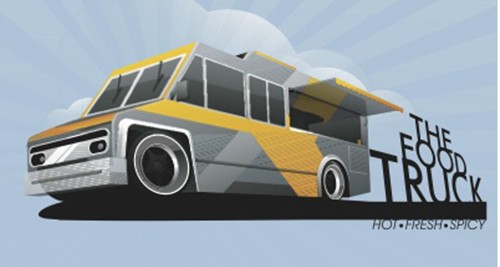You started your culinary quest by mixing all the sodas together when you went to your favorite fast food joint. Then you experimented with peanut butter and created your famous peanut butter and jelly burgers that became a hit at friends’ barbecues.
You grew older, started a 9-to-5 but still tend to get a little crazy when it comes to creating some unusual dishes. Why not leave your far-from-appealing desk job for starting your own food truck?
Page Contents
Keys To Starting Your Own Food Truck
Let Your Culinary Creativity Blossom
First, you are going to need to come up with some unique culinary delights. As food trucks catch on in more cities across the U.S., you may run into hefty competition, but don’t fret. Instead, get creative. If you think giving your Grandma’s famous tuna casserole a Colombian twist and stuffing it into an empanada is too weird, it’s not. Food trucks are known for putting flair and spin on traditional favorites. Thrillist has a list of the Top 21 Food Trucks of 2014 if you are starving for ideas. The list includes Mac Mart in Philly — a truck that turns all your favorite comfort food dishes into an explosion of mac n’ cheese — and Bacon Bacon, whose truck features dishes inspired by everyone’s favorite protein.
Get Some Dough Before You Roll the Dough
Once you have come up with your dishes, you are going to need to scrounge up some money to get everything cooking. Startup costs for a food truck are between $70,000 and $80,000, according to Forbes. Not cheap by any means but certainly doable with some creative funding. Obtaining a bank loan may not work for you if you have poor credit or if you do not want to take on more debt. Crowdfunding sources like Kickstarter are a fun — and often successful — way to raise money. Create a page showing off your unique food truck idea, and use Kickstarter’s platform to reward users with free food or stickers for investing in your concept. Additionally, you can turn to family and friends to help with funds to support your new venture. Or, if you receive payments from a structured settlement, you could sell future payments to a company like J.G. Wentworth and invest the money in your food truck.
Getting the Proper Permits and Insurance Costs
You have successfully funded and purchased a sweet truck, now it is time to start looking into any permits to get things rollin’. Start by checking the requirements for a mobile vendor in your area. Some permits for vendors are more expensive than others. For example, in Los Angeles, a permit will cost you nearly $700. Each city has different regulations. Check out the Phoenix Street Food Coalition website for some tips on getting your food truck business licensed.
You will also need to check out the insurance costs you’ll be taking on. Just like any other commercial kitchen, you need to have General Business Liability Insurance, which will run up to $3,500. Like any other moving vehicle, you will also need to pay for truck insurance, which depending on your truck, can run up to $5,000 per year.
Location, Location, Location
Just like real estate, the most important part of your new food truck venture is location. You have the most unique menu and have taken care of all the nitty-gritty funding and licensing, but how are you going to share your dishes and profit if people can’t find you? Think about who will eat your dish and try to be where they would be. Perhaps you are serving wraps or veggie sandwiches for those on the go. Placing your food truck in a business district would make more sense. If you are selling greasy, scrumptious burritos, moving your truck to an area where the night owls flock would help you move those burritos. Start by entering a few food truck events to get a feel for the demographic that enjoys your food the most, and then move to where they go!




